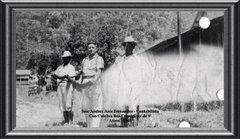Luis Lobo, Past Chairman of the Board of Advisors and faculty member, lectures at the American Bankers Association Stonier Graduate School of Banking at The Wharton School of Business, The University of Pennsylvania
|
The aging baby-boom population, coupled with lower birth rates in white and black households, would normally spell lower productivity and consumption rates in the United States. Enter U.S.-born children of immigrant or second-generation Hispanics. An otherwise declining American population is being undergirded and the growth curve lifted by the largest and younger consuming minority.
The growth in the Latino population will not by itself help the United States overcome economic decline. It will be the belief set of this group that will fuel economic expansion coming out of the Great Recession. Immigrants are motivated people. There is little evidence to suggest that individuals and families uproot themselves to get on welfare rolls in the United States. Not everyone dares to get on a makeshift boat to cross the Florida Straits fleeing communist Cuba, or takes the land route across Central America and Mexico, risking life and limb for a chance at political or economic freedom.
Driven individuals are seeking better outcomes in their families when these are not available in their own countries. Remember the waves of Irish fleeing starvation in the 1840s, Jews fleeing genocide in the 1930s and Vietnamese escaping war in the 1960s; but only a small percentage fled, because only the motivated seek to change the reality of their lives. My father emigrated from Costa Rica in the early 1960s, seeking his own self-actualization and providing an “American” education for his children.
The Great Latino Migration of the 1980s was caused by the devaluation of the Mexican peso, brutal unemployment and by the murderous civil wars in Central and South America. The Migration Policy Institute has noted that net migration across the southern border of the U.S. has been nearly zero in the last five years. Yet 75 percent of the 50 million Latinos are U.S. born. We have witnessed the arrival of our parents, with nothing but their determination and will power, to work and educate their children. My father rose to a leadership position in the textile industry in North Carolina and I have had the privilege of a 30-year career in banking. Our children, born in the U.S., know this story and are proud to cast their impact on this country.
The business community began to make forays into serving this multicultural community after the 2000 U.S. census showed a dramatic rise in the Latino population. My employer, BB&T, has been involved for years, providing multicultural banking centers staffed with individuals who speak Spanish along with Internet and mobile-based solutions for a generation that has grown up with a smart phone in their hands.
What U.S.-born Latinos share is the immigrant story. This is the story of the peoples of the United States. It was once a story of limited government, a respect for individual rights, the story of an America where anyone could achieve their dream because of freedom and their willingness to improve themselves.
There are many who believe that the dream is in decay due to the socialization of our country, run-away government spending and the robbery of the productive by taxes and the redistribution of wealth. The immigrant story causes the shock of assimilation to themselves and their offspring. It forces them to comply with a new way of life. In most cases, failure is not an option, as having left their countries required a one-way ticket with destiny.
The Latino community will lead the nation out of recession by having the highest employment rate, 60 percent of those eligible to work, compared to 58.6 percent of the general population in the United States, per the Pew Hispanic Center. Many work two or more jobs. Their children are now graduating high school at a higher level and entering trade school, colleges and universities. They are “savers,” having learned the discipline for a rainy day. Owning a home is an affirmation of their success in this country. These folks and their children have been driving small-business startups for many years, further creating opportunity for other Americans.
The recent election showed the permanence of the Latino community. Their vote went to the Democrats. However, because of their conservative family values, they are a wild card for future elections. The Latino population will, in time, fold into the fabric of America just like all past immigrants . The utility of the Spanish language will diminish, but not so their culture. This is a culture steeped in productive work, personal accomplishment, the freedom to create in commerce, arts and sciences, and a love for America.
If we were in the sunset years of the American experiment, the great sun of rebirth is now on the horizon.
Luis G. Lobo is an executive vice president and multicultural markets manager for BB&T. The Journal welcomes original submissions for guest columns on local, regional and statewide topics. Essay length should not exceed 750 words. The writer should have some authority for writing about his or her subject. Our e-mail address is:Letters@wsjournal.com. Essays may also be mailed to: The Readers' Forum, P.O. Box 3159, Winston-Salem, NC 27102. Please include your name and address and a daytime telephone number.
In the final analysis, your attitude determines your effectiveness in everything, every time! LGL www.LuisLobo.Biz







